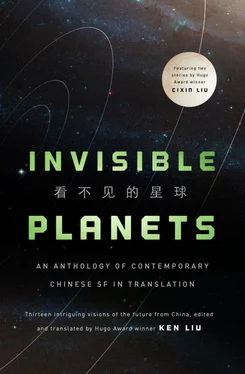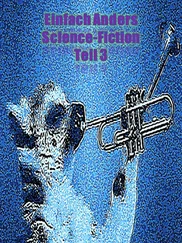* * *
“So you’re in marketing?”
The woman and I are walking together in the light of the setting sun. The stone-paved street is bathed in a golden glow. Lovely smells waft from the snack bars.
“Sure. You can also say I’m in sales. How about you? Office lady? Civil service? Police? Teacher?” Then I add a bit of flattery. “Actress?”
“Ha! Keep on guessing.” She seems to enjoy my attempt at humor. “I’m a special-care nurse. Surprised?”
“So even nurses can get sick and need rehab.”
After dinner, we go to a bar. She’s disappointed by the decline in the level of service in Lijiang. “What happened to all the fun people who used to run this place?”
From one of the waiters we find out that the place is now owned by Lijiang Industries (stock code #203845), backed by several wealthy conglomerates. The local owners the woman knew sold because they either could no longer afford to keep the place running or could not afford a new license. Everything is so much more expensive now. But the stock of Lijiang Industries is doing very well.
The ancient city at night is filled with the spirit of consumerism, but we can’t find anywhere we want to go. She has no interest in hearing Naxi folk music played by a robot orchestra: “Sounds like a braying donkey with its balls cut off.” I don’t want to see a folk dance demonstration by a bonfire: “Like a human barbecue.” In the end we decide to lie down on our bellies by the side of the street, watching the little fish swimming in the waterway.
In the waterways of Lijiang live schools of red fish. Whether it’s dawn, dusk, or midnight, you can see them hovering in the water, facing the same direction, lined up like soldiers on a parade ground, ready for inspection. But if you look closer, you’ll see that they aren’t really still. In fact, they’re struggling against the current in order to maintain their position. Once in a while, one or two fish become tired and are pushed out of the formation by the current. But soon, tails fluttering, they fight their way back into place.
It’s been ten years since I last saw them. They , at least, haven’t changed.
“Swim, swim, swim. Before you know it, life is over.” I repeat the same words I said ten years ago. “Just like us,” she says.
“This is the hidden meaning of life,” I say. “At least we still can choose how to live.” I sound so pretentious I want to gag.
“But the reality is that I didn’t choose you, and you didn’t choose me.”
My heart skips a beat. I look at her. I really haven’t thought about inviting her to come back to my hotel; I still don’t feel the return of my libido. This is a misunderstanding.
She begins to laugh.
“I was quoting a song. You don’t know it? Well, I’m pretty beat. Why don’t we meet up again tomorrow? You’re fun.”
“But how do I find you…” I suddenly realize that I don’t have my mobile.
“I’m staying here.” She hands me the card from a hotel. “If you’re too lazy to walk there, just get a dog.”
“A dog?”
“You really don’t know? Any stray dog would do. Take a piece of paper, write down the time and place you want to meet at, and stick it in the dog’s collar. Then swipe the hotel card through the collar.”
“You’re not kidding?”
“You need to read your Lijiang guidebook.”
* * *
I don’t know how long I slept.
I think it’s the afternoon of the second day, but the position of the sun tells me it’s morning. Except I have no way of ascertaining that it’s not the morning of the third day, the fourth day, or a morning that comes after a dream that lasts a lifetime.
Maybe that’s the trick to full rehab: just don’t dream about business reports and my boss’s fat face.
I look for a dog. But the dogs here have sharp noses. They can smell the failure on me and run away. I’m forced to buy a packet of yak jerky. I feed a dog—a real son of a bitch—until it’s stuffed. Finally I get it to carry my message.
In case she forgets who I am, I sign the note, “Last Night’s Fish.”
I wander the streets. I enjoy the sun and the idleness. No one here has any sense of time anyway, so she can come whenever she wants to.
I see an old man sitting in a corner with a falcon. The falcon and the man are both full of energy. I go up to them with my camera.
“No pictures!” the old man shouts.
“Five yuan! One dollar!” the falcon shouts in a mixture of Sichuan-accented Mandarin and English.
Fuck! They’re both robots. The city has nothing authentic anymore. I turn around angrily.
“Do you want to know why the sky in Lijiang is so blue? Do you want to hear the legend of the Jade Dragon Snow Mountain?” Seeing that I’m about to go away, the old man changes his pitch and even his accent. Now he sounds like a man from urbane Suzhou. “I know everything there is to know about Lijiang. One yuan only for each piece of information.”
Why not? I just want to kill some time. Might as well hear his lies. I take out a coin and stick it into the falcon’s beak. Clink! A panel opens in the falcon’s chest, revealing a pink-glowing keypad.
“To hear why the sky of Lijiang is so blue, press one. To hear the Legend of Jade Dragon Snow Mountain, press two.…”
Enough. I press “1.”
“Modern Lijiang relies on condensation control and scatter index standardization. The technology is able to maintain sunny days with probability above ninety-five-point-four-two-six percent. Through microadjustments to the atmospheric particle content, it is able to maintain the hue of the sky between Pantone2975c and 3035c. The system is designed by…”
Damn it. I feel sad. Even the sky, so beautiful it’s like the pristine sky present at Creation, is fake.
“Looking for UFOs?” the woman asks as she puts her hands on my shoulders from behind.
“Can you tell me if anything here is real?” I mutter.
“Sure. There’s you. There’s me. We’re real.”
“Real sick,” I correct her.
* * *
“Tell me about yourself. I love getting to know someone.”
We’re now back in the bar. Through the window we can see the fish in the waterway below, swimming, swimming, going nowhere.
“Let’s play a game,” she says. “We take turns guessing facts about the other person. If the guess is right, the other person drinks. If the guess is wrong, the guesser drinks.”
“Sure. We’ll see who gets drunk first.”
“I’ll go first. You work for a big company, right?”
“Ha. My boss’s favorite saying is, ‘We’re a proper, global, modern, big’”—I lower my voice—“‘factory.’”
She giggles.
I can’t remember if I told her anything about my company in the past. But I take a drink anyway.
“Your patients,” I ask, “are all important people, right?” She drinks.
“You’re an important man at your company,” she says. I drink.
“I’ll ask something more interesting,” I say. “You’ve had patients who made passes at you, haven’t you?”
She blushes and drains her glass.
“You must have many girlfriends,” she says. I hesitate for a second, and drink. “Had” is a form of “have,” I tell myself.
“You are not married,” I say.
She smiles, not answering.
I shrug, taking a drink.
Only after I’m done does she lift her glass and drink.
“Not fair! You tricked me,” I say. But I’m happy.
“It’s your own fault for being impatient.”
“Fine, then I’m going to guess that you have insomnia, anxiety, arrhythmia, irregular periods…” I know I’ve been drinking too fast. I know I’m going to regret this, but I can’t stop talking.
Читать дальше












